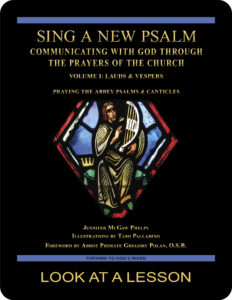liturgy
 One of the central elements of the practice of the Church is the liturgy, or as it’s commonly understood, the celebration of the sacraments and the Liturgy of the Hours. Liturgy is at the very heart of Christian life, and as such it is helpful for us to have an understanding of what it means and what it asks of us as Christians.
One of the central elements of the practice of the Church is the liturgy, or as it’s commonly understood, the celebration of the sacraments and the Liturgy of the Hours. Liturgy is at the very heart of Christian life, and as such it is helpful for us to have an understanding of what it means and what it asks of us as Christians.
The word liturgy comes from the Greek λειτουργία (leitourgia) which means “the work of the people.” The word originally was used to describe contributions wealthy citizens of Athens made to the city in the form of public works and festival celebrations. It’s due to these public, festal celebrations that the church came to use the same word to describe public, shared celebration.
The core concept of liturgy being a work given to and for the people is maintained in the Christian sense. Paragraph 1069 of the Catechism of the Catholic Church explains that for us as Christians liturgy has come to mean participation in the work of God. God as the ultimate benefactor has put on a work or a festival on behalf of us all as people, a public work to which we all are called. As we share in this public celebration sponsored by God, we likewise are called to participate in the full scope of God’s work on earth, the salvation of all people.
How do you think participation in the public celebrations of the Church can help us carry out God’s work on earth? What can we do to more fully participate in the liturgy?
you also may like Volume I of our Psalms study
 Sing a New Psalm: Communicating with God Through the Prayers of the Church—Volume I: Lauds & Vespers provides an in-depth look at Psalms prayed in morning and evening liturgies. (Volume II, set for publication in 2024, looks at Vigils, Day Prayer & Compline.) The study is based on The Abbey Psalms and Canticles, a translation prepared by the Benedictine monks of Conception Abbey and published by the United States Conference of Catholic Bishops (USCCB). Click on the book’s cover to view a sample lesson.
Sing a New Psalm: Communicating with God Through the Prayers of the Church—Volume I: Lauds & Vespers provides an in-depth look at Psalms prayed in morning and evening liturgies. (Volume II, set for publication in 2024, looks at Vigils, Day Prayer & Compline.) The study is based on The Abbey Psalms and Canticles, a translation prepared by the Benedictine monks of Conception Abbey and published by the United States Conference of Catholic Bishops (USCCB). Click on the book’s cover to view a sample lesson.
 Click on the picture of the statue of Moses with horns (above) to learn more about Lost in Translation. A new entry is archived each Monday. Contact us to receive Lost in Translation by email every week. You may use any of the contact links on our website to ask Matthew a question.
Click on the picture of the statue of Moses with horns (above) to learn more about Lost in Translation. A new entry is archived each Monday. Contact us to receive Lost in Translation by email every week. You may use any of the contact links on our website to ask Matthew a question.
